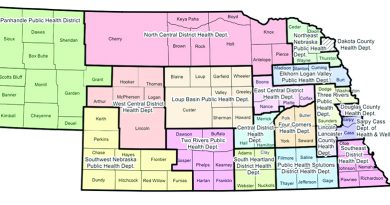Radon is a Serious Hazard
Radon is a naturally occurring, invisible, odorless gas that is harmlessly dispersed in outdoor air, but when trapped in buildings, can be harmful at elevated levels. Radon is a radioactive decay product of radium, which is itself a decay product of uranium. Uranium and radium are both common elements in soil.
The science on radon has been formidable over the years, but never before have we had such overwhelming scientific consensus and robust data to support that exposure to elevated levels of radon causes lung cancer in humans.
The primary source of high levels of radon in homes is the surrounding soil. Radon gas enters the same way air and other soil gases enter the home; through cracks in the foundation floor or walls, hollow-block walls, and openings around floor drains, pipes and sump pumps.
However, because you can’t see or smell radon, people tend to minimize the health effects and ignore the possibility it might exist in elevated levels in their homes.
All homes should be tested for radon, each house is different and individual testing is the only way to determine radon problems. Testing homes for elevated levels of radon is simple and inexpensive, and if discovered, radon problems can be fixed.
Radon test kits are available from the Nebraska Health and Human Services Department. Short-term detectors are used for two to seven days. They provide quick screening measurements indicating potential radon problems. Short-term detectors should be placed in the lowest livable level of the house, preferably during the winter. Long-term detectors (such as alpha track detectors) are left in place for three months to one year. They provide the advantage of averaging seasonal variations associated with radon levels. Long-term detectors are generally placed in main living areas. Contact your local UNL Extension office for availability of short-term kits.
Testing your home for radon is as simple as opening a package, placing a radon detector in a designated area, and, after the prescribed number of days, sealing the detector back in the package and mailing it to a lab.
It is important for families to take action during this year’s National Radon Action Month by testing their homes for elevated levels of radon. It is a serious health hazard with a straight forward solution. For more information on radon, radon testing, and radon mitigation, call 1-800-334-9491 the Nebraska Radon Hotline.
Look in the Yellow Pages or call your state radon office to locate radon mitigators in your area.
Source: Lorene Bartos, UNL Extension Educator, Lancaster County.
Upcoming Events
Jan. 16, 23, 30 – Annie’s Project, 6 to 9 p.m., Fillmore County Extension Office, Geneva.
UNL Beef Shortcourse
Jan. 17: 7 p.m., on NET2, If the Drought Ends: Grazing and Forage Options, Dr. Bruce Anderson and Dr. Jerry Volesky, University of Nebraska.
Jan 24: 7 p.m., on NET2, Grazing and Forage Options with Continuing Drought, Dr. Bruce Anderson and Dr. Jerry Volesky, University of Nebraska.
Jan 31: 9:30 a.m.-4 p.m.-Managing Pasture and Forage Resources Through the Drought, Agriculture Research Development Center, Mead, darci.mcgee@unl.edu.
For further information on these or other topics contact Darci Pesek, UNL Extension educator for Nuckolls/Thayer counties in Nelson, 402-225-2381; Hebron, 402-768-7212 or email to: darci.mcgee@unl.edu.

